Underrepresentation of Disabled in Indian Politics

Persons with Disabilities in India are under-represented in many fields, with politics seeing some of the worst numbers. Their representation in Indian politics is worrisome and requires certain actions on the part of the legislation and government.
The W.H.O defines ‘disabilities’ as, “an umbrella term, covering impairments, activity limitations, and participation restrictions.” “An impairment is a problem in body function or structure; an activity limitation is a difficulty encountered by an individual in executing a task or action; while a participation restriction is a problem experienced by an individual in involvement in life situations. Disability is thus not just a health problem. It is a complex phenomenon, reflecting the interaction between features of a person’s body and features of the society in which he or she lives”.
Disability: A Sidelined Marginality
India is home to many kinds of marginalities. Most of them find mention in ongoing public discourses and discussions, but disability as a marginality is sidelined and overlooked because it is thought to be insignificant. While the political parties appeal to other marginalised groups or certain sections of the community for many reasons like securing their vote bank and others, the disability sector has been largely left out. The latest National Statistical Office (NSO) survey reported that persons with any kind of disability constitute 2.2% of India’s population, but they remain politically underrepresented. India’s disabled population along with various NGOs and civil rights groups have raised their voice to demand equal rights and fair treatment.
Political Reservations for People with Disabilities?
India is a signatory of the United Nations Convention on Rights of Persons with Disabilities (UNCRPD). It ratified this Convention on 01-10-2007 in pursuance of Article 35 of the Convention. Article 326 of the Constitution of India provides for the ‘Right to be Elected’ under the ‘Right to Adult Suffrage’. However, the Indian government has not introduced any provisions yet to ensure equal representation in the parliament, state assemblies and panchayats in the country for the disabled community.
Political representation of Persons with Disabilities in India is absent. There are reservations for SCs, STs, and other minority communities in the Indian parliament, but there is no such provision for PWD, which is discriminatory. According to Hannah Pitkin, “To represent means to present again”, thus political representation is the activity of making the voices of the marginalised heard. Even the political parties in India generally do not consider giving opportunity for the disabled community on a “social responsibility basis”, rather they field candidates based on their popularity.
Disability as a Reason for Disqualification
In 2011, T. Kavita, a hearing-impaired tailor from Villupuram district in Tamil Nadu, was prevented from contesting panchayat elections. This was because being “deaf-mute” disqualifies a candidate as per the Tamil Nadu Panchayats Act, 1994. Various disability rights organisations protested then, supporting Kavita. When the issue was taken to Madras High Court, the court gave an interim order allowing Kavita to contest, but the last date for filing nomination had passed by then.
“During the hearings, the state government said the Act would be amended to remove the discriminatory provision, but it has not been done yet. Anyway, since the order allowed Kavita to contest, it follows that other hearing and speech impaired people could contest from then on,” says advocate Prabhakaran, who was involved with the case. Activists also filed a PIL in the Supreme Court saying that the discriminatory provision should be struck down from all state laws in India; the case is still ongoing. Many states like Kerala and Andhra Pradesh still have the provision disqualifying “deaf-mute” applicants in their Panchayat Raj Acts.
Similar to Kavita’s case, P. Saravanan, an employee at the Central Library in Dharmapuri district in Tamil Nadu, was barred from contesting in elections to the Dharmapuri Public Library Employees and Thrift Co-operative Society. The reason here was not the law itself, but an interpretation of it. As per Tamil Nadu Co-operative Societies Act, 1983, candidates who can’t read and write Tamil or English would be disqualified. Saravanan who is visually impaired could read and write but in Braille.
Many states like Andhra Pradesh also have municipal and panchayat laws barring leprosy-affected people from contesting local elections, even though leprosy is now a curable disease like any other. ‘Leprosy-cured’ is included as a disability as per the RPD Act. In 2008, Supreme Court even upheld the disqualification of a candidate in Orissa on grounds of having ‘risk-prone leprosy’. Dhirendra Pandua, who was elected as a municipal ward councillor and the Chairperson of the Municipal Council in 2003, had approached the court when disqualified.
Intersectionality in Disability
Dr Kimberle Crenshaw coined the term “Intersectionality” to describe the experience of living with multiple identities like gender, race, class, culture etc. Disabled people constitute a heterogenous but sizeable social group, and yet close inspection of the make-up of our political legislatures reveals few disabled politicians. While disabilities are sometimes invisible or hidden, and people seeking elected office might be hesitant to disclose them.
We need to take into account the intersectionality that exists within the disabled community, as there are some sections of people within this community who can avail the benefits and facilities to a better extent than the rest. For example, the chances for political representation for disabled women would be comparatively less than for disabled men. Already, there is an extremely low representation of women in Parliament, and in such a case, the chances of disabled women entering politics seem a blur. I believe that this issue can be addressed by bringing the provision of reservations for the disabled community first, and subsequently, reservation for disabled women can be introduced further to address the issue of intersectionality. The disabled community in itself is not a homogenous group, there are varied categories and these categories sometimes have to face double subjugation because of the other identity that they possess besides disability.
Voting Booths still Inaccessible
It’s only in the 2000s, with the Supreme Court’s orders the in the Disabled Rights Group vs. Union of India case, that the Election Commission of India (ECI) started making voting booths accessible. Accessibility features for voters with disabilities, including Braille ballot paper, disabled-friendly toilets and ramps were missing at several polling booths across the country during the Lok Sabha polls. In Guwahati, for instance, the polling booth was on the upper floor in a building without an elevator. In the present system, even the most basic rights of voting and contesting in elections remain a challenging battle for people with disabilities. One of the most important steps that ensure accessibility across the country is training and sensitizing volunteers or booth level officers. Accessibility arrangements in states like Goa and Gujarat showed huge improvement with wheelchair friendly vehicles being made available to transport persons with disabilities to polling booths. Other states should also follow the same and should make improvements regarding the accessible environment and infrastructure for disabled people so that they can exercise their right to vote.
Need for Inclusiveness for the Disabled Community
The world is inclining towards inclusive development of all communities, but unfortunately, the expected levels of inclusiveness for the disabled community have not been achieved yet. Political representation of the disabled in the Parliament, State assemblies and Panchayats will be a very big step towards achieving inclusive development and will encourage disabled community in rural areas to develop the required infrastructure for themselves to empower them. The disabled community in the country is gradually making it to the forefront in almost all aspects of life. Inclusive policies go a long way in enabling the disabled community and providing them with equal opportunities to make use of their rights, attain their strengths and contribute to a nation’s growth. A quota for the Persons with Disabilities for contesting in the Lok Sabha, state elections and in elections at the local level will be a significant progressive step in the journey towards inclusiveness.
References
- Guest Author, (2020, November 25). Political Representation of Persons with Disabilities. Kashmir Observer.
- Jha, Martand, (2016, December 21). The History of India’s Disability Rights Movement. The Diplomat. Retrieved March 26, 2021, from https://thediplomat.com/2016/12/the-history-of-indias-disability-rights-movement/
- Ali, Arman, (2019, May 17). 2019 is EC’s Year of Accessible Elections but what we want is a disabled MP in Parliament. The Print. Retrieved March 25, 2021, from https://theprint.in/opinion/2019-is-ecs-year-of-accessible-elections-but-what-we-want-is-a-disabled-mp-in-parliament/236519/
Image Credit: Unrevolution



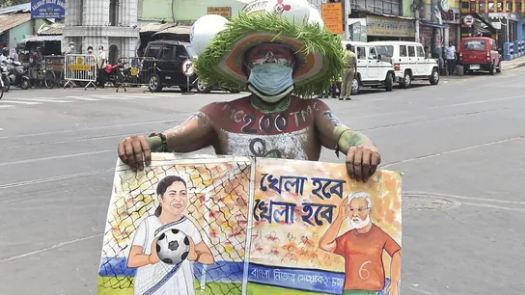
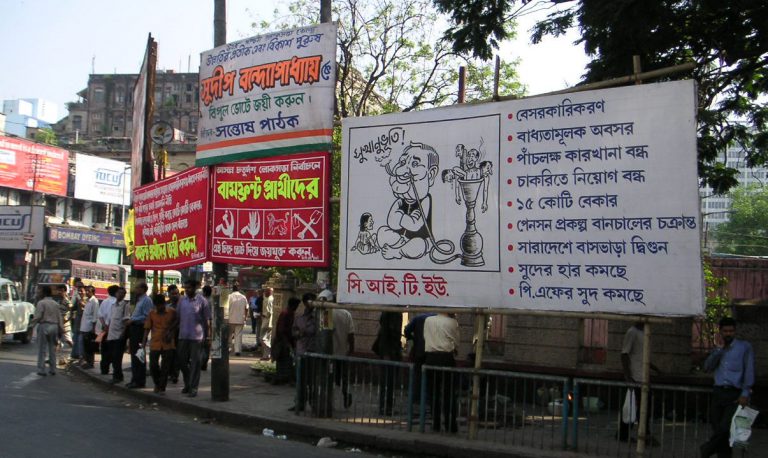
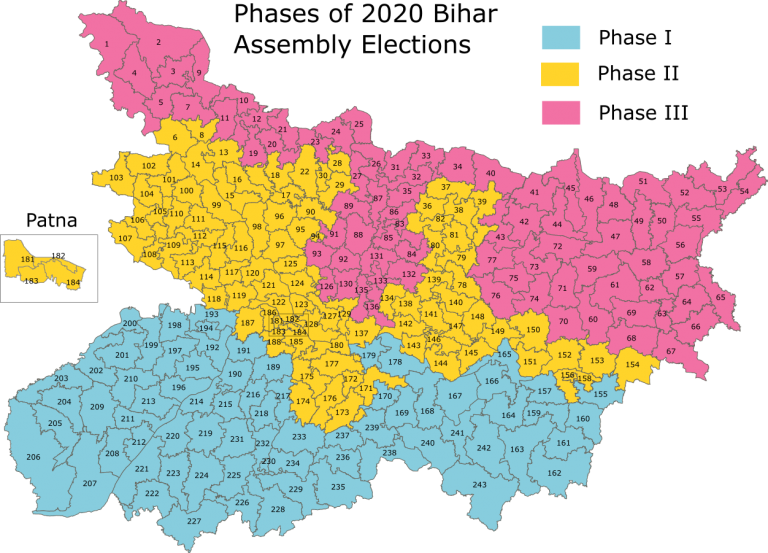
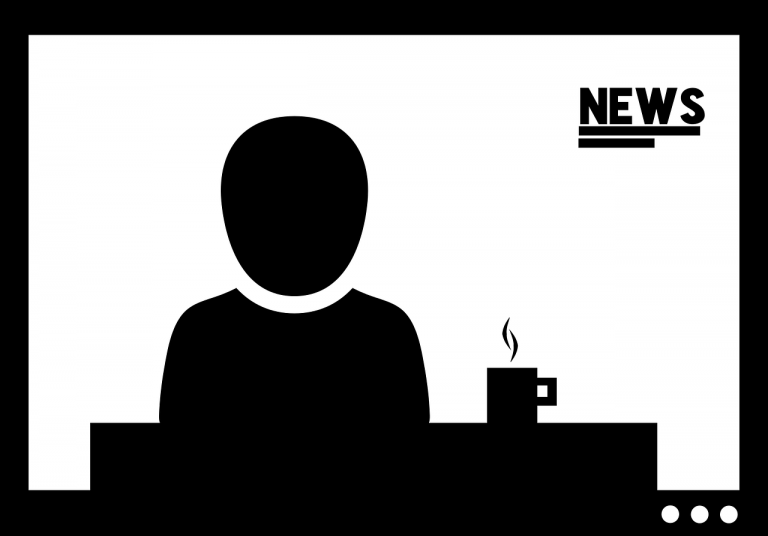
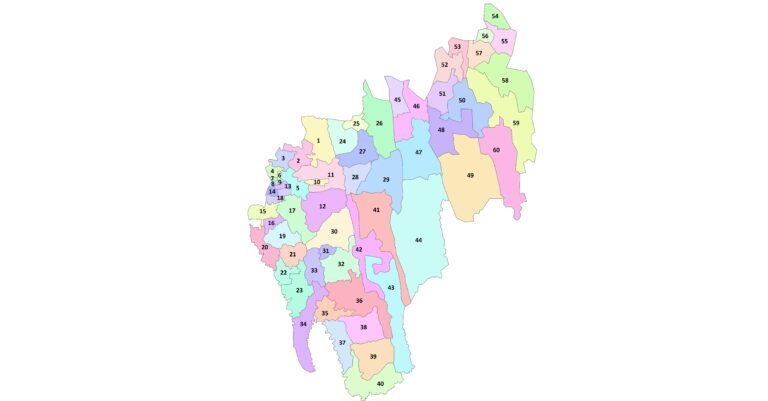
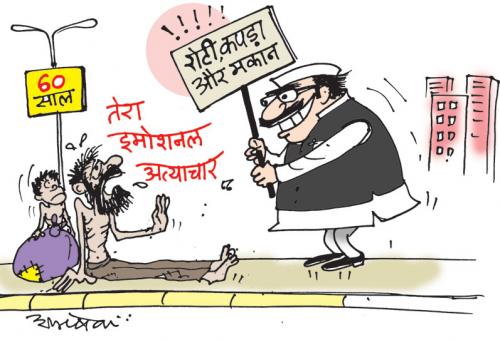
Very well written. What about the number of disabled MPs in the Parliament? And MLAs in state legislatures?
Compilation of those facts would enrich the article even more.
Well done